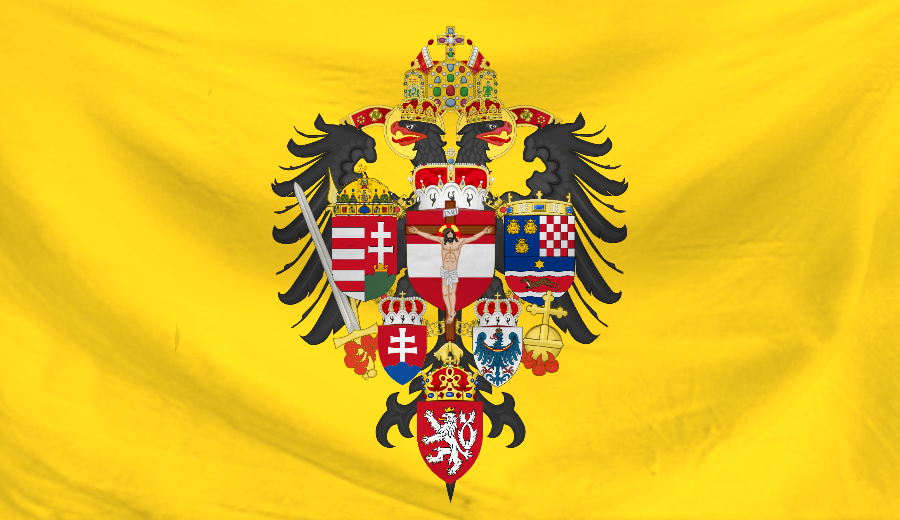Tags
Austria, Bl. Karl of Austria, christendom, Holy Roman Empire, House of Hapsburg, Imperial History, Karl of Austria, Politics, Prophecy
The decisive task of Christians consists in seeking, recognizing and following God’s will in all things. The Christian statesman, Charles of Austria, confronted this challenge every day. To his eyes, war appeared as “something appalling”. Amid the tumult of the First World War, he strove to promote the peace initiative of my Predecessor, Benedict XV.
From the beginning, the Emperor Charles conceived of his office as a holy service to his people. His chief concern was to follow the Christian vocation to holiness also in his political actions. For this reason, his thoughts turned to social assistance. May he be an example for all of us, especially for those who have political responsibilities in Europe today!- Pope St. John Paul II
These few sentences eloquently express the heroic life of Blessed Karl, the Last Emperor and King. Pope Saint Pius X said of him that he was “Heaven’s reward to Austria for all her faithfulness to Pope and Church.” He took his sacred duty as King-Emperor as it was meant to be taken. He magnificently conveyed the principle of Catholic Kingship: “I have done my duty, as I came here to do. As crowned King, I not only have a right, I also have a duty. I must uphold the right, the dignity and honor of the Crown…. For me, this is not something light. With the last breath of my life I must take the path of duty. Whatever I regret, Our Lord and Savior has led me.”
Yet he was the subject to vicious slanderous attacks against his character. The beatitude “Blessed are ye when they shall revile you, and persecute you, and speak all that is evil against you, untruly, for my sake” was fulfilled in his life, but so was Our Lord’s promise at the end of that verse: “Be glad and rejoice, for your reward is very great in heaven.” Always glad to do the Lord’s will, Karl is among the few exemplary rulers in this faithless age.
Such a Catholic and Holy monarch could not be allowed to keep his throne in age which has no place for God. A hundred years of suffering for the peoples of Mitteleuropa was not too large a price to pay for Catholic order to be destroyed wherever it existed. But God used this evil to create good, and Emperor Karl understood this: “I must suffer like this so my people will come together again.”
Indeed, he suffered greatly, betrayed by those he trusted, exiled from his peoples whom he love dearly, forced to live in primitive conditions, and eventually dying in agony. Yet even at his death, he died as “a Catholic and Emperor…”
Such a life seems to come out of some old martyrology from the Sacred Ages, and not from our faithless modern age. Yet it is in such times when war and destruction threaten us that God raises up such heroes. When civil war threatened the Empire, God raised Rudolf the Count of Hapsburg (a descendent of Emperor Charlemagne) out of obscurity, and in the war which destroyed the last remnant of the Empire, God raised up the Count’s descendant, a man with the same devotion to Our Lord in the Eucharist, and his line has not failed to this day.
And in this day Emperor Karl stands a glorious witness to marriage as God intends it to be, saying to his wife Empress Zita after their wedding, “Now, we must help each other to get to Heaven.” At the great Austrian shrine of Mariazell he entrusted his marriage to our Blessed Mother Mary, and even in exiled he never failed to visit her shrine at Nossa Senhora do Monte. May we be granted such devotion to our Blessd Mother. And may we all repeat the Emperor’s last words when our own time comes: “Thy will be done… Yes… Yes… As you will it… Jesus!”
For more information please read this Life of Bl. Karl by Br. Nathan Cochran O.S.B.



This was such a beautiful, inspiring and greatly moving novena and final post on Blessed Emperor Karl. It is encouraging to know we have such a holy interceder for us in these times when our Catholic integrity and Holy Matrimony is being challenged not only by enemies without, but also by some within the Church Herself.
Thank you so much for posting this THR, and I shall definitely look out for the book you recommend.
P.S. I visited the lovely shrine of Mariazell in 1998 with a friend; it was the first time I heard about Blessed Karl. Through friends of mine in England I have discovered there is a strong devotion towards him there among some traditional Catholics! 🙂
LikeLiked by 2 people
It is very sad that the monarchies which remain in Europe today are so far from this they appear only as mutilated shadows of something greater. None lodge protest as the most abominable of heresies are implemented by ‘parliaments’. The last principled holdout was the Grand Duke of Luxembourg I believe, who was stripped of his power when he blocked euthanasia in his tiny country.
LikeLiked by 2 people
What has happened to you HR? I haven’t seen you anywhere for over a week.
LikeLiked by 1 person
I’ve been on a weeklong vacation, but I’m back now.
LikeLiked by 1 person
Pingback: Blessed Karl , the Hope of Austria | The War for Christendom